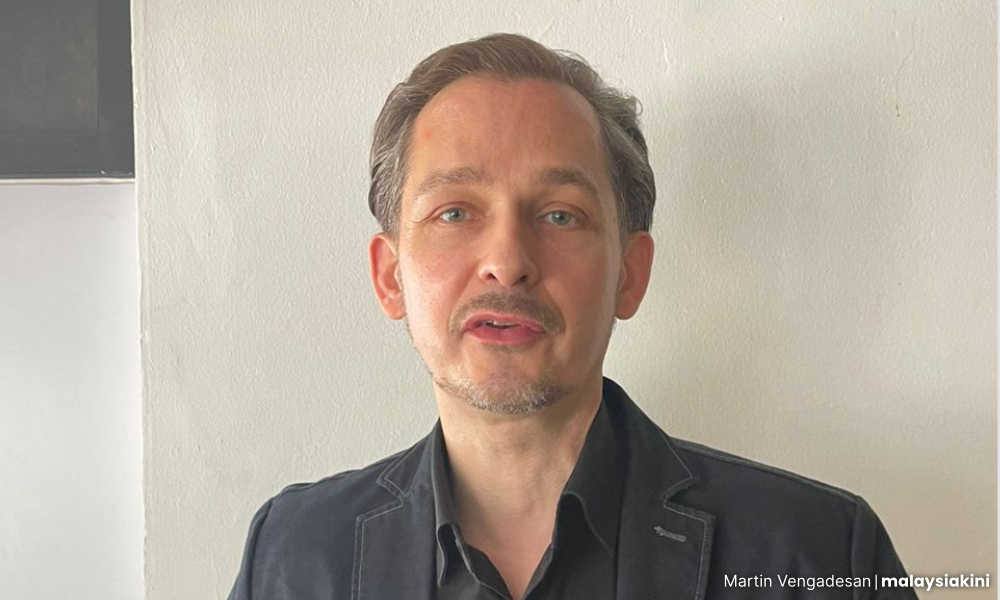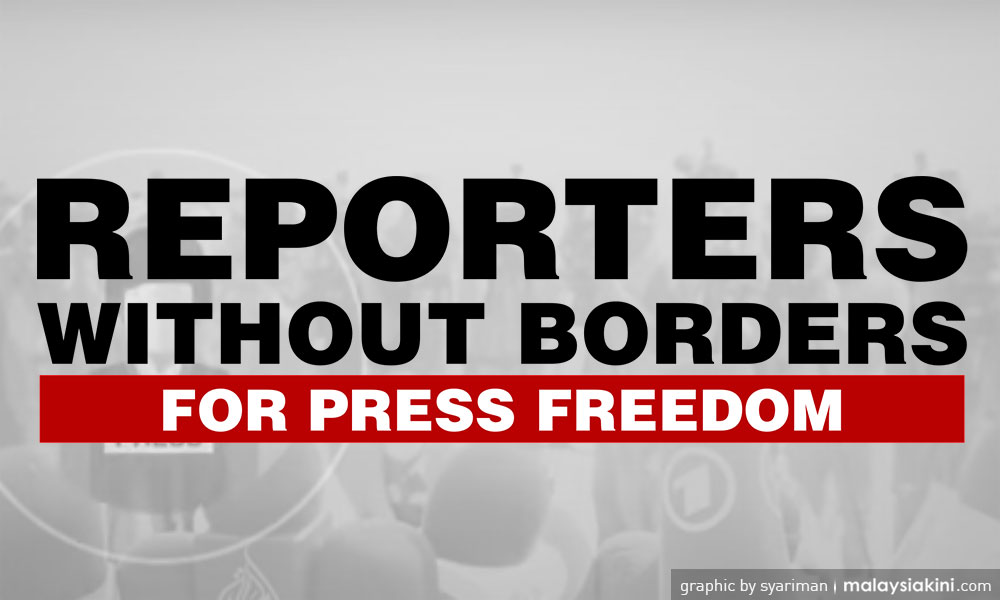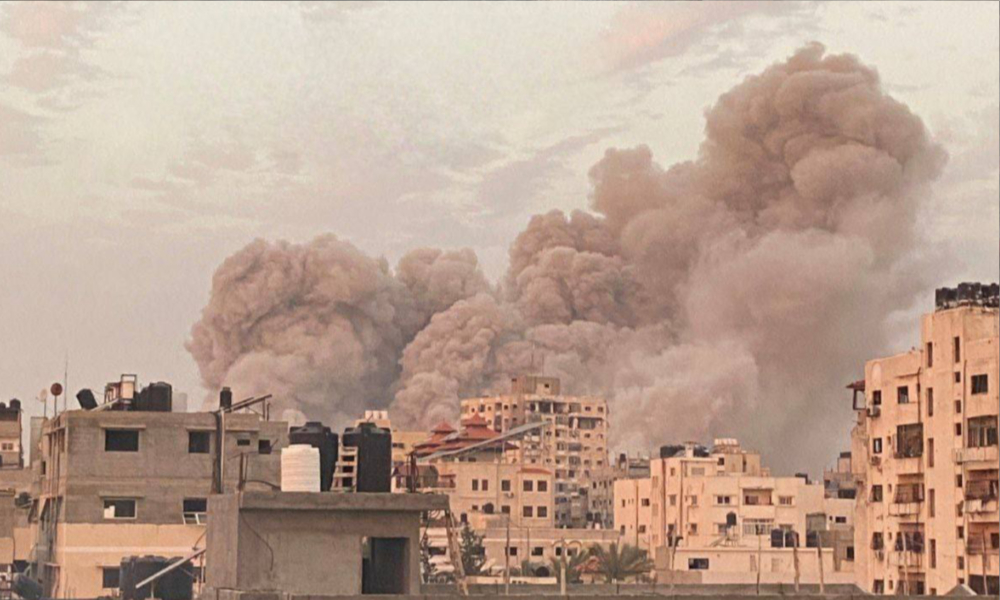INTERVIEW | Malaysia is still a leading example of press freedom and democratic rights in a region full of authoritarian regimes, said Reporters Without Borders (RSF) Asia-Pacific bureau director Cedric Alviani.
The representative of the international press freedom watchdog has spent 25 years as an advocate in the Asia-Pacific region and reminded readers that there are many authoritarian regimes in the form of one-party states and military dictatorships, in which journalists often pay for their lives for the willing to seek out the truth.
“In countries where journalists are being killed, it means that journalists are feared by politicians, by the mafia because they can reveal corruption and embezzlement.
“So the killing of journalists doesn’t necessarily mean that the press is not free. Sometimes, it means that the press is doing its work. It’s a phenomenon we are fighting against. Still, sometimes the killing is less about the level of press freedom and it’s more related to the level of violence in the country,” he said in an interview with Malaysiakini.
He cited the example of the Philippines, which has seen more than 100 journalists killed in the line of duty since 2003.
“It is not only journalists who are being shut down by guns, a lot of people are shot by guns for other reasons. So it happens that journalists are part of this but it is more about gun control and the general level of violence in the Philippines because the country has a robust tradition of independent journalism,” he said.
He added that the killing of journalists was a wide-ranging phenomenon occurring in countries as far-flung as Mexico and Russia.

Alviani also said that countries such as China and Vietnam might not have high numbers of slain journalists, but they do have many languishing in jail.
“So, it’s also not because there’s no killing of journalists that the press is free. You can see this in China, where the Chinese government is always very proud to say we don’t kill journalists.
“Firstly, it is not totally true, because they put journalists in jail until they die and because the living conditions in jail are so bad. It usually doesn’t take so long. So we’ll say it’s a slow death,” said Alviani.
He said that the region also had countries like Myanmar, which was in the throes of an insurrection against a brutal military dictatorship which made it hard to monitor the level of violence against journalists and civilians.
He noted that as a working democracy with peaceful transitions of power between elected governments and a relatively independent and diverse media, Malaysia was already a rarity in Southeast Asia and the region in general.
“The battle for media freedoms is an ongoing one that doesn’t grab the limelight but is key to a society’s development,” he added.
The Trump presidency
Founded in 1985, RSF’s head office is based in Paris. It has 13 regional and national offices and Alviani founded the first Asian bureau in Taipei in 2017.
Alviani acknowledged that as Europe-based advocates for free media and the right to information, RSF is often targeted by authoritarian governments, claiming that the group has a hidden agenda.

“Maybe I could understand it if our criticism was only targeted at developing countries. But for example, when you look at the Donald Trump presidency, RSF was extremely vocal.
“Anytime the president, this team, or anyone in the US did something or said something against press freedom or engage in media bashing, we spoke up.
“I can take the Julian Assange case as an example, which happens to be a case between some countries which are the most economically developed on the planet, so the US, the UK, and Australia, and we are extremely vocal.
“We are also extremely vocal in France. On some topics, like violence against journalists during demonstrations, our being vocal was bothering the French government. So, I would say as an international NGO, we are present in every country,” he said.
He said that RSF has correspondents in almost every country on Earth and makes it a point to be present, adding that the group’s funding might come from Western-based foundations, but at no point does it answer to governments.
Gaza conflict
In 2023, a total of 45 journalists were killed in connection with their work, 16 fewer than in 2022, with the conflict in Gaza accounting for a large number of those slain.
Alviani said that the conflict also brought into focus the polarisation that can accompany questions of “neutral journalism”.

“I would say on the general principle, depending on where you were born and what is your history, you’re going to see things differently. We are an international NGO and we have to have a balanced view.
“And everything we do is based on facts. So, I do not see that we ever published a statement that was based on emotion or the personal opinion of the writer.
“In the case of Palestine, we were very careful to use the same system to count the killed journalists as we use in other countries in the world.
“We have not changed anything, especially for Palestine. So, usually when a journalist is killed, first we want to assess if they are a journalist. We research to make sure that that person was working as a journalist, not like a former journalist 20 years ago, or a propagandist, or a blogger.
“The second thing is, was that person targeted in the role of a journalist? Because if you’re a journalist but you have a car accident, you will not be counted.
“Even using this strict method, there are already too many,” he said.
He also noted differences of opinion when it came to the 2015 attacks on the French satirical weekly magazine Charlie Hebdo, in which 12 people were murdered in a shooting attack by two French-born Algerian Muslim brothers, Saïd Kouachi and Chérif Kouachi.
The duo were responding to satires that they perceived as insulting to their faith.
“Our mandate is not the freedom of opinion or freedom of expression. Our mandate is the rights of journalists to work in a free environment and by extension, the right of the public to receive accurate, unbiased news information.
“We believe that editorialists and people who write opinion pieces are also a special category of journalists because if you only report on the facts, without providing a narrative behind the fact people are very unlikely to understand the context correctly.
“So, and it is true that when you’re an editorialist, you have a responsibility for a certain moderation that some editorialists will not respect, you know, so in these cases, it may be difficult to gauge when editorialising ends and hate speech is starting,” he said. - Mkini




No comments:
Post a Comment
Note: Only a member of this blog may post a comment.